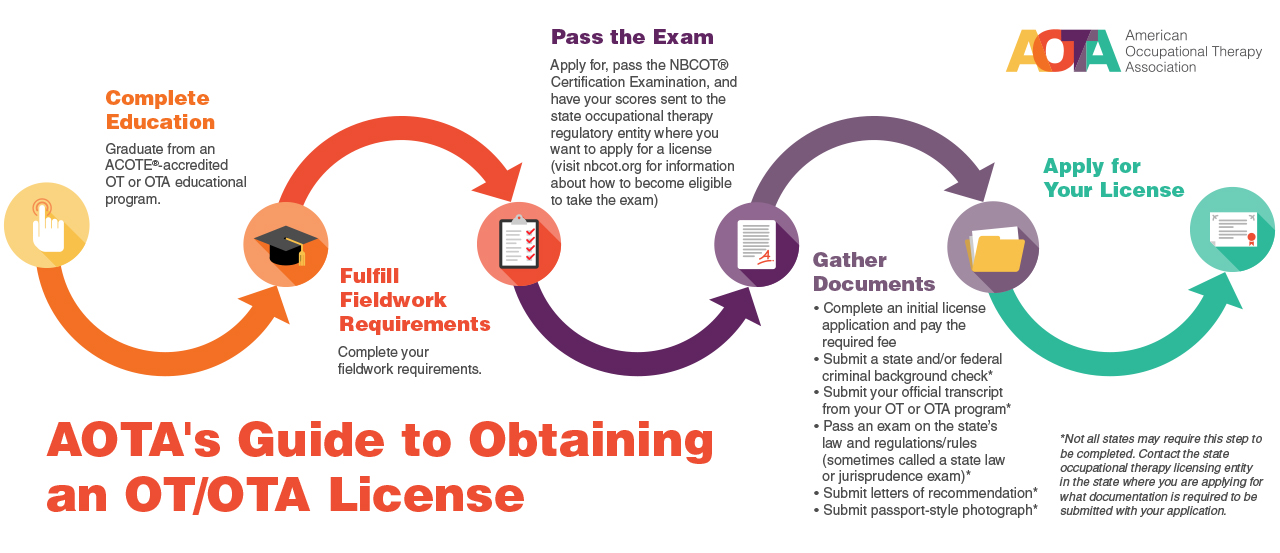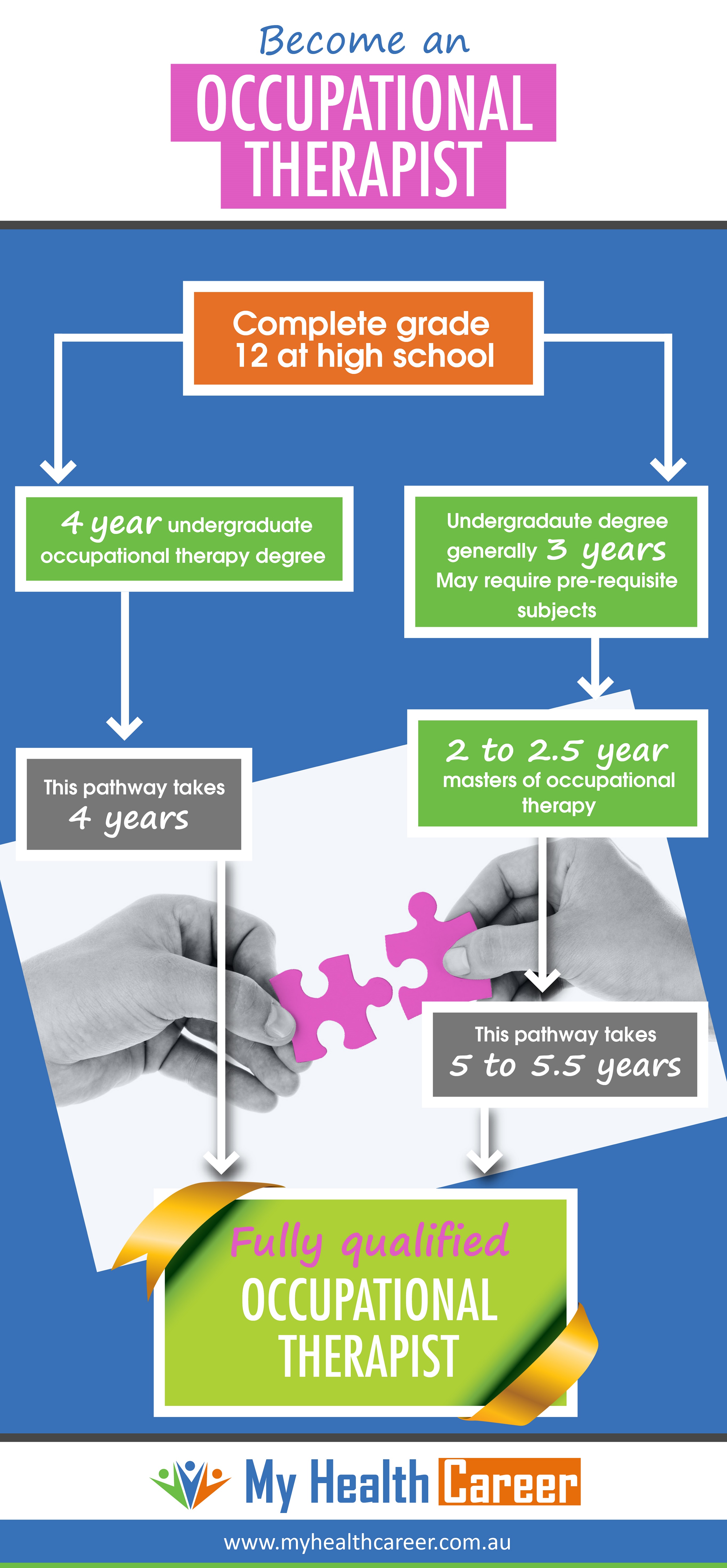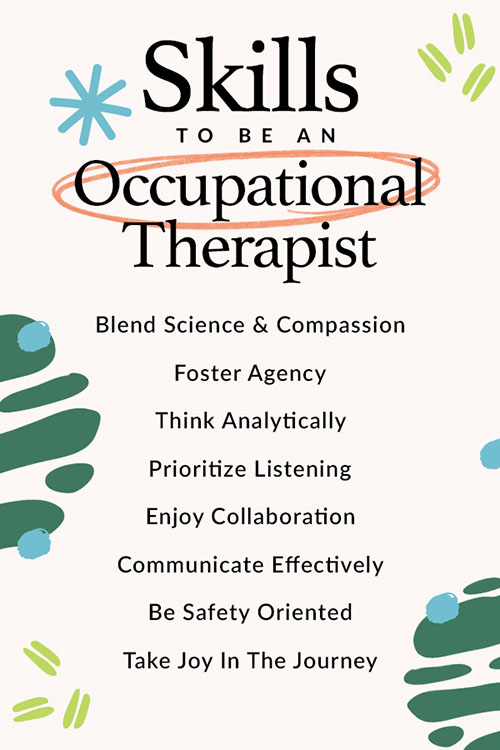
How to Become a Occupational Therapy Expert: A Step-by-Step Guide
Imagine waking up every day to a career that not only brings you joy but also makes a real difference in people’s lives. As someone who is passionate about helping others, you might be wondering how to channel that energy into a fulfilling profession.
Occupational therapy could be the perfect fit for you. This dynamic field allows you to assist individuals in overcoming challenges and achieving their personal goals, leading to a more independent and satisfying life. In this guide, you’ll discover the essential steps to becoming an occupational therapist.
Whether you’re just starting your educational journey or considering a career change, you’ll find valuable insights that demystify the process. By the end of this article, you’ll have a clear roadmap to pursue a rewarding career that aligns with your passion for making a positive impact. So, if you’re ready to explore a path where compassion meets expertise, keep reading to uncover how you can make your dream a reality.
Educational Requirements
Becoming an occupational therapist requires specific educational steps. These steps ensure you gain the necessary skills and knowledge. The journey involves choosing the right degree and obtaining the required licenses and certifications.
Degree Options
To start, you need a bachelor’s degree. This degree can be in any field, but health-related majors are beneficial. After that, pursue a master’s degree in occupational therapy. This program focuses on both theory and practical skills. It usually takes two to three years to complete. Some universities offer combined bachelor’s and master’s programs. These programs can save you time and streamline your education.
Licensing And Certification
After earning your degree, obtaining a license is crucial. In the United States, all states require occupational therapists to be licensed. To achieve this, you must pass the National Board for Certification in Occupational Therapy (NBCOT) exam. This exam tests your knowledge and skills in the field. Once you pass, you earn the title of Occupational Therapist Registered (OTR). Keeping this certification requires regular renewal and continuing education.

Gaining Practical Experience
Gaining practical experience is crucial for aspiring occupational therapists. It helps bridge the gap between theoretical knowledge and real-world application. This experience not only enhances skills but also boosts confidence. Engaging with patients in diverse settings provides invaluable insights. Here are effective ways to gain practical experience in occupational therapy.
Internships And Fieldwork
Internships offer hands-on experience in various healthcare settings. Hospitals, clinics, and rehabilitation centers are common places for internships. They provide a chance to work alongside experienced professionals. Interns learn patient assessment, treatment planning, and therapy techniques. Fieldwork is another excellent avenue for experience. It involves working directly with patients under supervision. It helps refine practical skills and gain exposure to different cases.
Volunteering Opportunities
Volunteering is a great way to gain experience in occupational therapy. Many community centers and nonprofits seek volunteers. These opportunities allow interaction with diverse populations. Volunteers assist in activities that promote health and well-being. This experience is valuable for understanding patient needs. It also helps in building empathy and communication skills. Volunteering hours can complement formal education and internships.
Developing Key Skills
Developing key skills is vital for an aspiring occupational therapist. These skills help you succeed in your career and improve patient care. Let’s explore essential skills you need to develop. Starting with communication techniques, then focusing on problem-solving abilities.
Communication Techniques
Effective communication is crucial in occupational therapy. You need to express thoughts clearly to your patients. Listen actively to understand their needs. Use simple language to explain complex concepts. This builds trust and promotes a positive therapy experience. Tailoring your communication style to each patient is essential. Some may prefer visual aids. Others might need verbal explanations. Adjusting your approach helps patients feel comfortable and understood.
Problem-solving Abilities
Problem-solving skills are key in occupational therapy. Each patient has unique challenges. You must identify these issues quickly. Develop creative solutions tailored to individual needs. Think critically to address complex problems. Experiment with different techniques. Evaluate outcomes to see what works best. Adapt and refine your strategies constantly. This ensures your patients receive the best possible care. By honing these skills, you enhance your ability to support patients effectively.

Continuing Education
Continuing education is vital for occupational therapy professionals. It helps enhance skills and knowledge. Staying updated ensures you provide the best care to patients. The field is dynamic, demanding regular learning and adaptation. Explore new techniques, tools, and approaches through advanced courses and workshops.
Advanced Courses
Advanced courses offer in-depth knowledge on specialized topics. They cover areas like neurorehabilitation or pediatric therapy. Completing these courses can open new career opportunities. They also deepen your expertise in specific therapy practices. Many institutions offer online and offline options. Choose courses that fit your schedule and learning style.
Learning from experts gives valuable insights. It helps build a robust foundation in occupational therapy. Advanced courses often include practical components. This hands-on experience is crucial for understanding complex cases. Staying informed about industry changes is easier with these courses.
Professional Workshops
Professional workshops provide interactive learning experiences. They focus on skill development and practical applications. Workshops are usually short-term but highly effective. Attending them can boost your confidence and competence. Networking with peers is another benefit. You get to share experiences and learn from others.
Workshops often feature real-world scenarios. This prepares you for challenges in your daily practice. They offer a platform to ask questions and get immediate feedback. Many workshops are led by seasoned therapists. Their guidance is invaluable for refining your techniques.
Networking Strategies
Networking is vital for those pursuing a career in occupational therapy. Building strong connections can open doors to job opportunities and professional growth. Engaging with the right people helps stay updated with industry trends. This section will guide you on effective networking strategies.
Joining Professional Associations
Professional associations offer a wealth of networking opportunities. By joining, you access a community of like-minded professionals. Engage in discussions and share knowledge with peers. Many associations host events and workshops. These provide avenues for learning and connecting. Being an active member enhances your credibility. It shows commitment to the occupational therapy field.
Attending Conferences
Conferences are excellent places to meet industry leaders. They offer insights into the latest trends and practices. Attending helps in building relationships with experts. Participate in sessions and discussions. This involvement showcases your enthusiasm and dedication. Conferences often have networking events. Use these to introduce yourself to potential mentors and collaborators.

Specialization Areas
Occupational therapy offers diverse specialization areas. Each area has unique challenges and rewards. Specializing can enhance your career and impact lives more deeply. Below are two key specialization areas in occupational therapy.
Pediatric Occupational Therapy
Pediatric occupational therapy focuses on helping children. These children may have developmental or physical challenges. The goal is to improve their daily life skills. Therapists work with children in schools, clinics, and homes. They use play-based activities to engage young minds. This helps kids develop motor skills and social abilities. Communication with families is crucial. It ensures consistency in therapy practices at home.
Geriatric Occupational Therapy
Geriatric occupational therapy centers on the elderly. Older adults often face mobility and cognitive issues. This therapy aims to enhance their independence. Therapists design exercises to improve strength and coordination. They also adapt living spaces for safety. It’s important to address emotional well-being. Many older adults deal with isolation or depression. Occupational therapists provide support and encouragement. They help clients engage in meaningful activities.
Building A Successful Practice
Starting a career in occupational therapy is exciting. Building a successful practice requires planning and dedication. You must focus on marketing your services and managing client relationships. These elements are key to growing your practice.
Marketing Your Services
Effective marketing helps attract new clients. Create a simple and informative website. Describe your services clearly. Use social media to share helpful tips. Engage with potential clients online. Attend local health fairs and community events. Networking can boost your visibility. Offer free workshops to showcase your expertise.
Client Relationship Management
Building trust with clients is crucial. Listen to their needs carefully. Show empathy and understanding. Follow up after sessions to check progress. Keep communication open and friendly. Personalize therapy plans to suit each client. Happy clients will refer others to your practice. Maintain a warm and welcoming environment.
Frequently Asked Questions
What Is Occupational Therapy?
Occupational therapy helps people improve their ability to perform daily tasks. It focuses on enhancing life skills and promoting independence. Therapists work with individuals of all ages. They assist patients in recovering, developing, or maintaining necessary skills. This field addresses physical, emotional, and social needs.
How Do You Become An Occupational Therapist?
To become an occupational therapist, you need a master’s degree in occupational therapy. You’ll also need to pass a national certification exam. Some states may require additional licensing. Volunteering or working in healthcare settings can be beneficial. Continuous education is important to maintain certification and stay updated.
What Skills Are Needed For Occupational Therapy?
Occupational therapists need strong communication and interpersonal skills. They must have patience and empathy to support clients. Problem-solving and creativity are essential for developing effective treatment plans. Physical stamina is important for assisting patients. A good understanding of medical conditions and therapeutic techniques is crucial.
How Long Does It Take To Become An Occupational Therapist?
Becoming an occupational therapist typically takes around six to eight years. This includes completing a bachelor’s degree and a master’s program. Some programs may offer accelerated options. Fieldwork and internships are required for hands-on experience. Continuous learning is essential for career growth.
Conclusion
Becoming an occupational therapist offers a fulfilling career path. This journey requires dedication and patience. Start with a relevant degree and gain essential skills. Practical experience is crucial for building confidence and expertise. Certification boosts credibility and opens doors to opportunities.
Stay updated with industry trends to maintain a competitive edge. Networking with professionals helps in career growth and learning. Remember, helping others leads to personal satisfaction and growth. Embrace challenges and celebrate small victories along the way. The path may be demanding, but the rewards are truly worth it.
Ready to make a difference? Your journey begins now.





